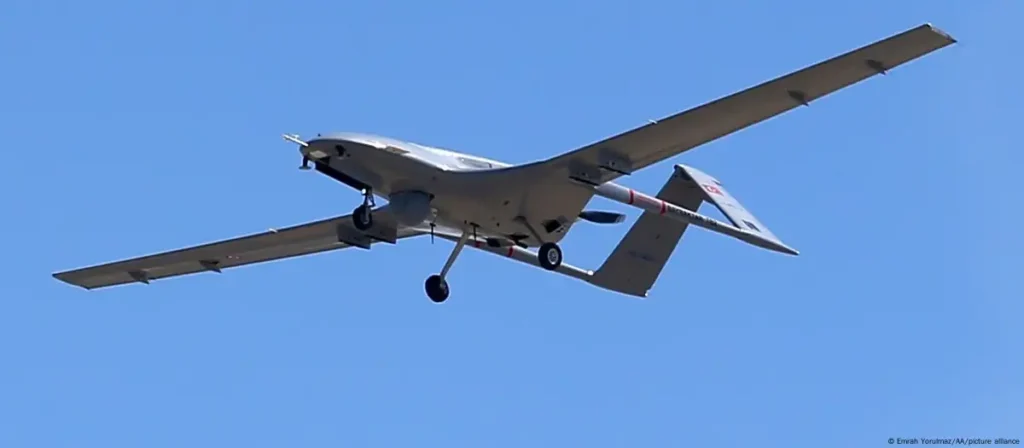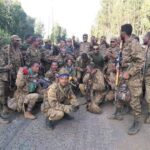The Amhara region of Ethiopia has seen a significant amount of turmoil due to ongoing conflicts and political tensions. While Prime Minister Abiy Ahmed has made certain promises of reforms, many view these efforts as mere cosmetic changes designed to appease the public rather than effect real, meaningful progress. These so-called reforms are often seen as a way to placate international critics and maintain a semblance of stability, without addressing the root causes of human rights abuses and systemic injustices.
For many in the Amhara region, the reality on the ground is far from the optimistic narrative put forward by the government. Political repression, violence, and discrimination persist, with the government’s efforts seen as insufficient or even superficial. Instead of providing tangible relief, the reforms are often criticized for offering temporary fixes that only serve to keep the status quo intact, leaving citizens to face the ongoing challenges without any real sense of hope for the future.
Context of Conflict and Repression
Since 2020, Ethiopia has faced multiple crises, including the Tigray conflict and escalating ethnic tensions. Even before the Tigray war, the Amhara people—the country’s second-largest ethnic group—experienced systemic violence and repression. Areas like Wollega and Metekel have seen attacks, killings, home demolitions, and massacres. Many have been forcibly displaced, disappeared, or arbitrarily arrested, often labeled derogatorily as “neftegna” and “settlers,” reflecting a broader pattern of ethnic-based persecution.
For those from the Amhara region, these conflicts are a painful daily reality. My homeplace continues to be ravaged by war, with daily violence and unrest. For years, there has been no communication—no internet or telephone service—compounding the emotional and psychological toll by leaving millions in isolation and fear.

Widespread Violence and Government Brutality
The ongoing crisis in Amhara has seen widespread violence and government brutality, with numerous reports of extrajudicial killings, arbitrary arrests, and the military’s heavy-handed tactics against civilians. These acts of violence are not isolated incidents but part of a disturbing and systemic pattern. Alongside the brutal killings, civilians have also been subjected to horrific acts of rape, theft, and robbery, often at the hands of government soldiers. The unchecked use of military force has left communities living in constant fear and uncertainty, with little to no hope of justice or accountability for the victims. The pervasive nature of these abuses highlights the depth of the crisis and the widespread suffering of innocent civilians caught in the crossfire.
These brutalities are not just the actions of rogue individuals but appear to be state-sanctioned. The families affected by these horrors not only face the anguish of losing their loved ones in such cruel and senseless ways but are also left without any form of justice or accountability. The absence of meaningful repercussions for those responsible further deepens the trauma and helplessness experienced by the victims’ communities.

Economic Collapse and Suffering
The ongoing conflict in Ethiopia’s Amhara region has triggered a severe economic collapse, disrupting transportation, essential services, and agricultural activities. Farmers are unable to access necessary supplies, and widespread insecurity has forced markets to close, pushing rural communities—already devastated by violence—further into crisis. In some areas, harvests have been deliberately burned, deepening food shortages.
The government’s failure to protect livelihoods, coupled with ongoing military actions, has made daily survival increasingly difficult. Reports indicate the deliberate targeting of civilian infrastructure, including schools, health centers, markets, and social gatherings, resulting in significant casualties. One of the deadliest incidents occurred on October 20, 2024, when a drone strike in the South Mecha district killed over 100 civilians.
The lack of international response has worsened the crisis, leaving affected populations without hope. Immediate humanitarian intervention and international pressure are essential to prevent further suffering and address this escalating humanitarian disaster.

When War Steals Education: The Crisis Facing Amhara’s Children
The ongoing conflict in Ethiopia’s Amhara region has severely disrupted education, leaving over 4.1 million children out of school as of 2024. More than 35% of registered students for the 2023-2024 academic year have been affected due to displacement, school destruction, and security concerns. Reports indicate that thousands of schools have been damaged, with at least 80% of institutions in conflict areas rendered non-operational.
The prolonged disruption threatens children’s educational progress, increasing the risk of illiteracy, economic hardship, and vulnerability to child labor and recruitment into armed groups. According to UNICEF, missed schooling in conflict zones can reduce lifetime earnings by up to 10% per year. Without immediate intervention, Ethiopia risks losing an entire generation of educated individuals crucial for future national development.
The Ethiopian military should immediately withdraw from the region, and negotiations should begin to restore stability. International humanitarian aid is urgently needed to rebuild schools, ensure security for students and teachers, and provide emergency educational programs. Global attention must prioritize this crisis to safeguard the fundamental right to education for millions of Ethiopian children.
International Response and Responsibility
Despite the enormity of the crisis, international actors have yet to take meaningful steps to hold the Ethiopian government accountable for the widespread violations occurring in Amhara and other affected regions. The United Nations, Human Rights Watch, and Amnesty International have all raised concerns, but the lack of decisive international action has allowed the violence to continue unabated. The international community must recognize that a failure to act risks enabling further atrocities and prolonged suffering.
Western governments, including those of the United States and the European Union, have issued condemnations but failed to implement significant sanctions or press for accountability. If the global community is serious about halting these abuses, it must exert more pressure on the Ethiopian government and hold those responsible for atrocities accountable.
A Call for Accountability
For Ethiopia to begin the long process of healing, it must confront the human rights abuses that have been allowed to fester for far too long. The Ethiopian government must end its campaign of violence and persecution, stop the arbitrary arrests, and provide real accountability for the many who have been killed or tortured. The people of Amhara, like all Ethiopians, deserve to live in peace and dignity.


